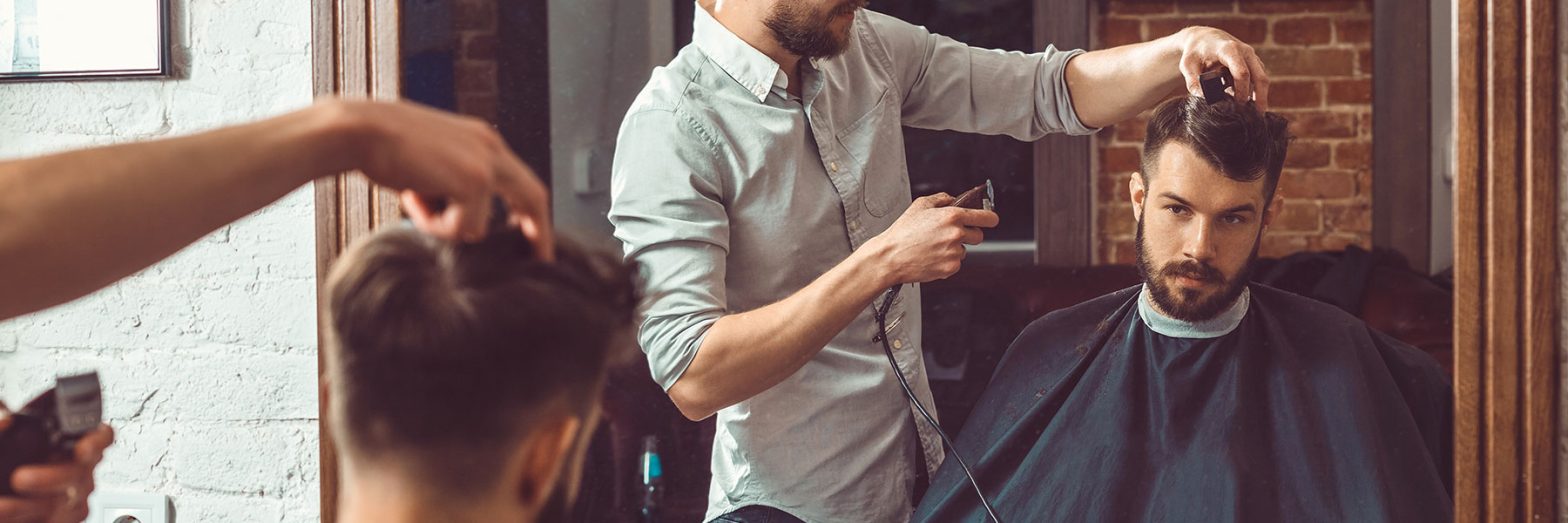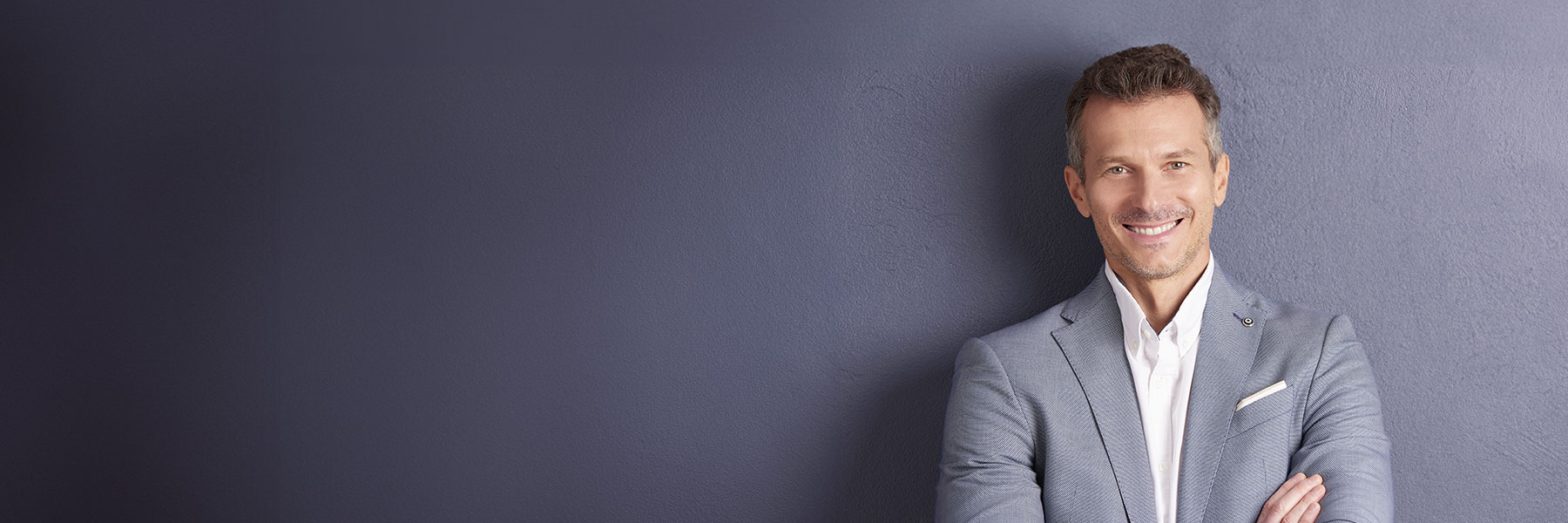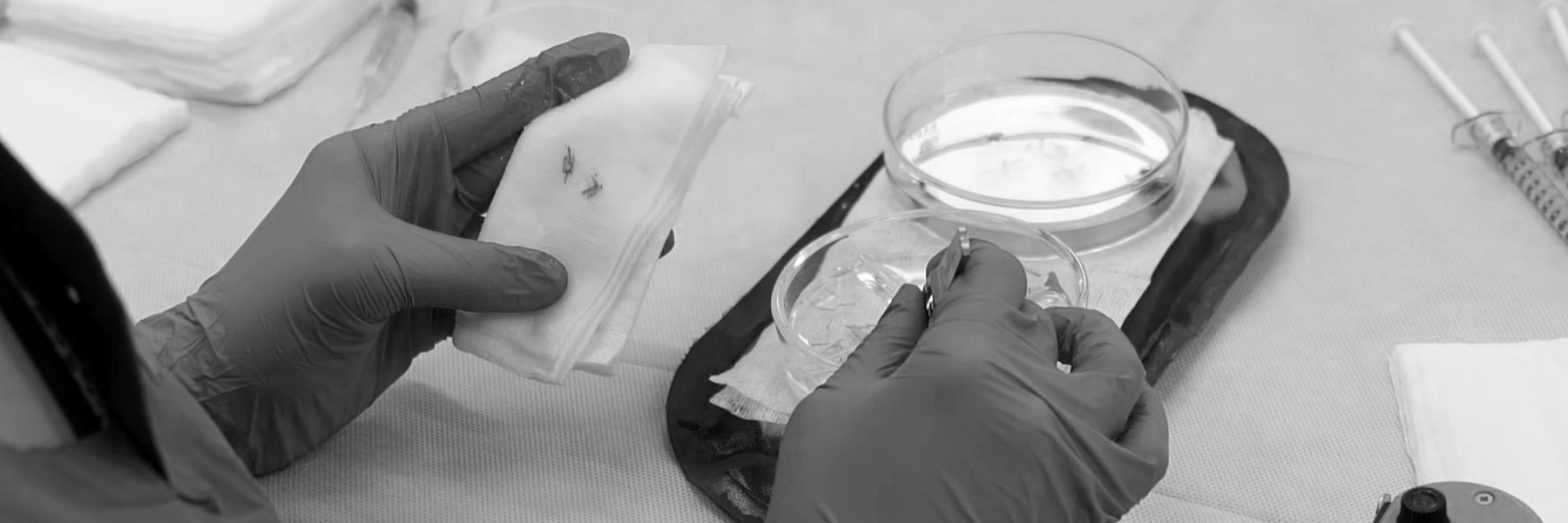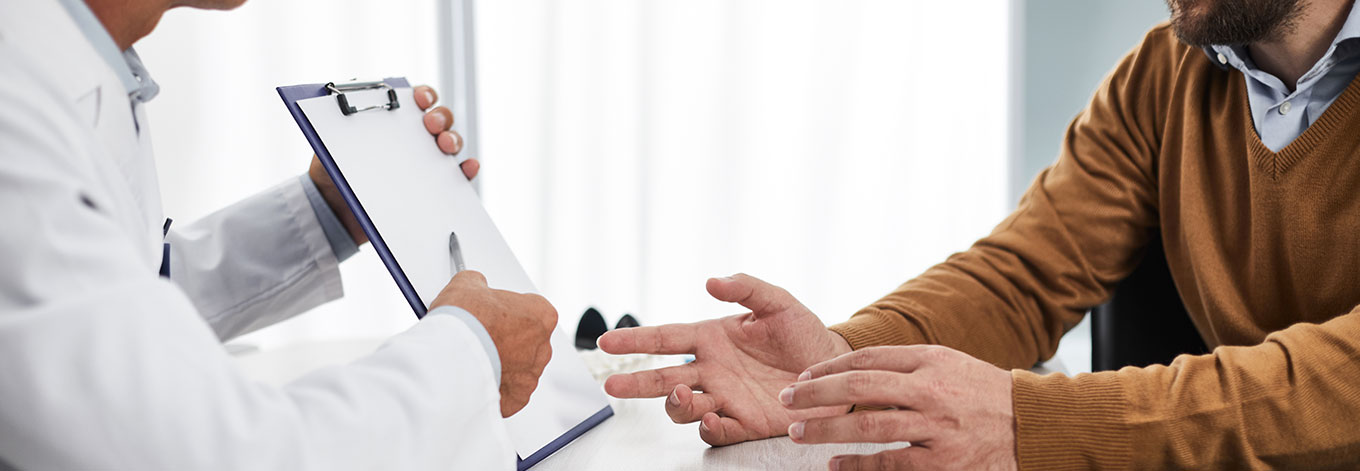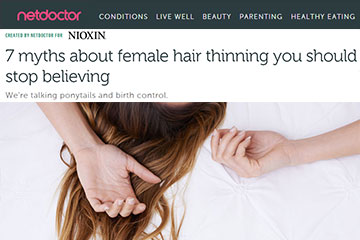
7 myths about female hair thinning you should stop believing
HAIR LOSS & HAIR TRANSPLANTS
NetDoctor
We’re talking ponytails and birth control.
Worried about hair thinning? You’re not alone, with 50% of the population now suffering from some form of hair loss. But before you start fearing the worst, it’s important to sort fact from fiction.
We caught up with a hair loss specialist Dr at The Private Clinic of Harley Street, to bust the most common myths around female hair loss.
1. Washing your hair too much can cause hair thinning
“There is a common misconception that washing your hair frequently is bad,” says Dr. “On the contrary; hair needs to be washed regularly to keep it clean and healthy. Evidence suggests that using the right products to maintain a healthy scalp as well as to strengthen hair can play a significant role in providing thicker, fuller hair. Regular conditioning is also good for the hair as it will make it softer, but make sure you apply it to the hair shaft and not the scalp.”
2. All hair loss is permanent
“Not all hair loss is permanent,” Dr explains. “If external factors such as diet, stress or over-styling are causing the hair to thin then this can be rectified by a change of lifestyle. If it’s an underlying medical condition, a specialist doctor can recommend treatment. However, if the cause is genetic then the loss is, unfortunately, permanent. In these specific cases, the only way to regain the hair that is lost is with a hair transplant procedure.”
3. Hair thinning only affects women with thin or fine hair
“Hair thinning can be triggered by a number of factors including genetics, medical conditions such as hormonal deficiencies or imbalance, stress, anaemia, vitamin deficiencies, thyroid problems, PCOS, diet, stress and weight loss,” says Dr . “Any of these factors can contribute to hair thinning and hair loss and they definitely don’t only affect women with thin or fine hair.”
4. The main cause of female hair loss is genetics
“Genetics do play a big part – just like men, women can inherit genes from their mother or father which leave them predisposed to hair loss,” Dr says. “But it’s important to note that, unlike baldness in men, hair loss in women is almost always caused by an underlying medical condition. Your first step should always be to seek the advice of a hair loss specialist in order to determine the cause. This can be your stylist as a first point of call.”
5. Wearing your hair in a ponytail has nothing to do with hair thinning
“Not true,” Dr explains. “You should exercise caution when wearing your hair in a tight ponytail and when wearing hair extensions too. Try not to do either excessively as they will pull the hair and weaken it. If you continue to cause stress to your hair by over-styling, braiding and/or using hair extensions, this could lead to traction alopecia – a condition brought about by environmental damage done to the hair.”
6. Birth control pills can contribute to hair loss
“This one is half true,” says Dr. “Birth controls pills can provoke thinning and in some cases, hair loss too. The good thing is that most of the time the hair loss or thinning is reversible. It’s important to say here that not all women on birth control pills will be affected by hair thinning and if they are, the degree of hair loss will vary case by case. Birth control pills can cause the hair to move from the growing phase to the resting phase too soon. This form of hair loss is called telogen effluvium. Furthermore, if baldness runs in your family, birth control pills can speed up the hair loss process.”
7. Changing your diet won’t make a difference
“Hair is made up of keratin, which is a natural protein. Making sure your diet is high in protein can therefore help to keep hair strong and looking shiny and healthy. Try to incorporate meat, fish and eggs into your diet (if you’re a vegetarian or vegan, look to high-protein foods such as quinoa, soy, lentils and beans) and you may gradually notice an improvement.
Vitamins and minerals such as vitamin A, vitamin D, biotin, iron, magnesium, niacin and zinc in will also help to contribute to strong and healthy hair, along with a diet rich in grains, fruits and vegetables.”
http://www.netdoctor.co.uk/conditions/skin-and-hair/a29434/female-hair-thinning-myths/



